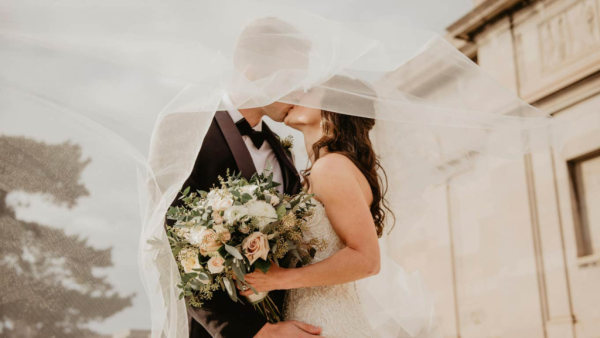

People are often encouraged to wait until they are older to marry. It sort of makes sense in an older means you’re wiser kind of way. But as with all matters of the heart, it seems, logic and reason just do not factor in, and what you think is right can often be wrong.
The relationship between age at the time of marriage and divorce risk was almost always linear — the older you were when you got married, the less chance there was that you’d get divorced. But data suggests that those who marry after their early thirties are actually more likely to divorce than those who marry in their late twenties.
Nicholas H. Wolfinger, a sociologist at the University of Utah, concluded that there’s actually such a thing as waiting too long, as well as a sweet spot age for relationship longevity. According to his 2015 findingssomeone who gets married when they’re 20 years old is 50% more likely to get divorced than someone who gets married when they’re 25.
Each additional year you wait to get married reduces the odds of getting divorced by about 11% until you hit 32, and then the trouble starts. If you get married over the age of 32, your odds of getting divorced start to go up.
Danielle Reese | Pexels
: Woman Shares Divorce Lawyer’s Hot Take On Marriage — ‘If Planes Crashed At The Same Rate You’d Never Fly Again’
These stats are relatively new from previous data, which always stressed what we’ve all thought: Waiting is better. Wolfinger said, “This is a big change … it’s only recently that thirty-something marriage started to incur a higher divorce risk. It appears to be a trend that’s gradually developed over the past twenty years: a study based on 2002 data observed that the divorce risk for people who married in their thirties was flattening out, rather than continuing to decline through that decade of life as it previously had.”
So, does the experience of staying unmarried past the age of 30 somehow make people unfit for a lasting marriage? If you’ve had many boyfriends or girlfriends, your exes might interfere with your marriage and may tempt you to be unfaithful, according to Wolfinger. If you’ve had children with one or more of your exes, the added drama could also have an impact. “Having multiple sex partners prior to marriage significantly increases the chances of getting divorced,” said Wolfinger.
If you just got an icky feeling about this research, you’re not alone. Don’t worry, we’ll get to the problematic nature of the researcher’s theories in a minute. In the meantime, Wolfinger argued that something called the “selection effect” is also at play. “My money is on a selection effect: the kinds of people who wait until their thirties to get married may be the kinds of people who are predisposed toward not doing well in their marriages.”
“For instance,” he continued, “some people seem to be congenitally cantankerous. Such people naturally have trouble with interpersonal relationships. Consequently, they delay marriage, often because they can’t find anyone willing to marry them. When they do tie the knot, their marriages are automatically at high risk for divorce.”
: 5 Professions People Should Avoid In A Spouse If They Want A Lasting Marriage, According To A Divorce Lawyer
Aside from the data itself being dated, which looked at marriages between 2006 and 2010, there was a religious leaning involved in the theories to why the data reflected the numbers it did. Now, I’m not a statistician or a researcher, so we’ll assume the numbers and the various models used to offer the predictions in marital stats are legit, most researchers don’t make unsubstantiated assumptions about their findings, and perhaps that’s what sits wrong with this research.
Promiscuity prior to marriage as a cause for increased divorce in couples who marry over the age of 32 just reeks of another highly refuted, religious-based study by Brad Wilcox, which basically found that marrying earlier is better, and living together before marriage, especially for women, is a surefire way to get divorced.
Unhappy with what he called “religious conservative scholar propaganda,” Philip Cohen, a sociologist at the University of Maryland, conducted his own research in 2022. Using data from 2018-2020, he concluded, “The odds of divorce decrease the older the woman was when she first got married. The decline is steepest before age 30, then flat till age 45, when it decreases some more.”
 Emir Kaan Okutan | Pexels
Emir Kaan Okutan | Pexels
What he stressed about the data and the all the research surrounding divorce rates and age was that there are so many variables and so many subjective influences in relationships that it’s nearly impossible to determine the success or failure of a union based solely on something as irrelevant as whether the individuals getting married were 31 or 32 when they decided to say “I do.”
He wrote, “Choosing an age to get married to minimize your odds of divorce seems like a bad idea. Age is a factor in the aggregate, but at the individual level, I would have to guess that marrying the right person at the right time for you matters more.” He concluded, “So, if you want to avoid divorce, marry the right person and have a great marriage … If you want to know about divorce rates in the aggregate, know this: Divorce odds are lowest for women who marry later, and for people who’ve been married a long time.”
And since literally nothing makes sense when it comes to the rules of love, his advice actually makes sense. If you want to get married and you feel confident in your partner and the strength of your relationship, that’s all that matters. Don’t rush or wait because you think it will improve your odds. Have faith in your love. The only statistics that matter are the ones in your own relationship.
: Divorce Lawyer Shares Why He Still Believes Trying To Find True Love Is Worthwhile
Christine Schoenwald is a writer, performer, and frequent contributor to YourTango. She’s had articles featured in The Los Angeles Times, Salon, Bustle, Medium, Huffington Post, Business Insider, and Woman’s Day, among many others.